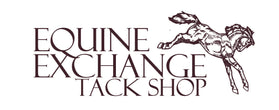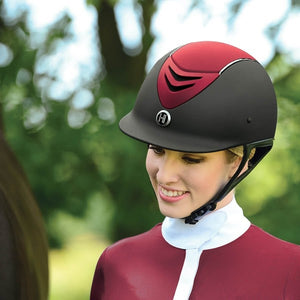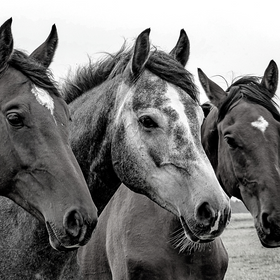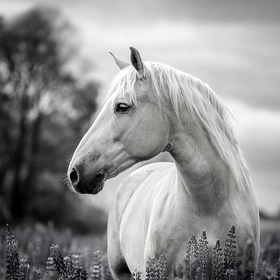
Summer Heat – Why Horses Crib
What is cribbing?
Horses, like people, can develop bad habits, especially when stressed or under-exercised. Cribbing is one of these bad habits and is even a compulsive behavior. Cribbing is when your horse places his teeth onto an object, generally, a wooden surface, sucks air into his throat, and grunts. Cribbing is particularly irritating because your horse often destroys walls, fences, doors, and other hard surfaces around them.
Why does my horse crib?
Cribbing is believed to lower cortisol levels and is a natural way to cope with stress. Many horse owners believe cribbing can be caused by stress or boredom. However, there is no solid evidence to support this theory. Other research points to a genetic component. For example, Thoroughbreds are more likely to crib than other breeds.
What are the risks of cribbing?
Though cribbing helps horses cope with stress, it has many adverse side effects. Horses that crib are prone to colic. The rapid inhaling puts added pressure on the abdomen and shifts part of the small intestine into a tight spot. The pancreas and liver trap the small intestine, cutting off blood supply and leading to severe symptoms. Surgery is the only way to rectify this issue. Cribbing can also cause damage and early loss of teeth, particularly the incisors.
How do I stop my horse from cribbing?
The effort to stop your horse from cribbing will be a lifelong challenge. Cribbing is very difficult to stop. After all, cribbing is a compulsive behavior. Your best bet is to prevent, distract, and discourage cribbing.
Eliminate Any Underlying Medical Issues
If cribbing starts suddenly with no other changes in your horse’s life, you should look at medical issues. The development of gastric ulcers can cause cribbing to start. You may need to adjust your horse’s diet to accommodate his needs. Consult your veterinarian to see if pain or another environmental stressor could contribute to this new behavior.
Allow Your Horse to Socialize
Allowing your horse to socialize with other horses will also deter cribbing. A busy horse will have less time to think about cribbing. Remember, horses are herd animals. They will follow the lead of other horses in the herd. If the other horses are not cribbing, your horse will be less likely to crib. The herd will also move around during the day and mentally stimulate your horse. This is especially important if you believe boredom is the underlying cause of cribbing for your horse.
Exercise and Mental Stimulation
Horses are curious creatures. They need physical and mental stimulation to stay entertained and out of trouble. Exercise and enrichment toys will reduce the amount of cribbing. Many horse toys are available to keep their mind and body busy.
Always speak to your veterinarian about concerns like cribbing. If the behavior is extreme, some items will stop the action. You can apply paints and sprays to make the solid objects undesirable. Cribbing straps and muzzles can also prevent your horse from cribbing. However, your horse will still try to perform the habit.





